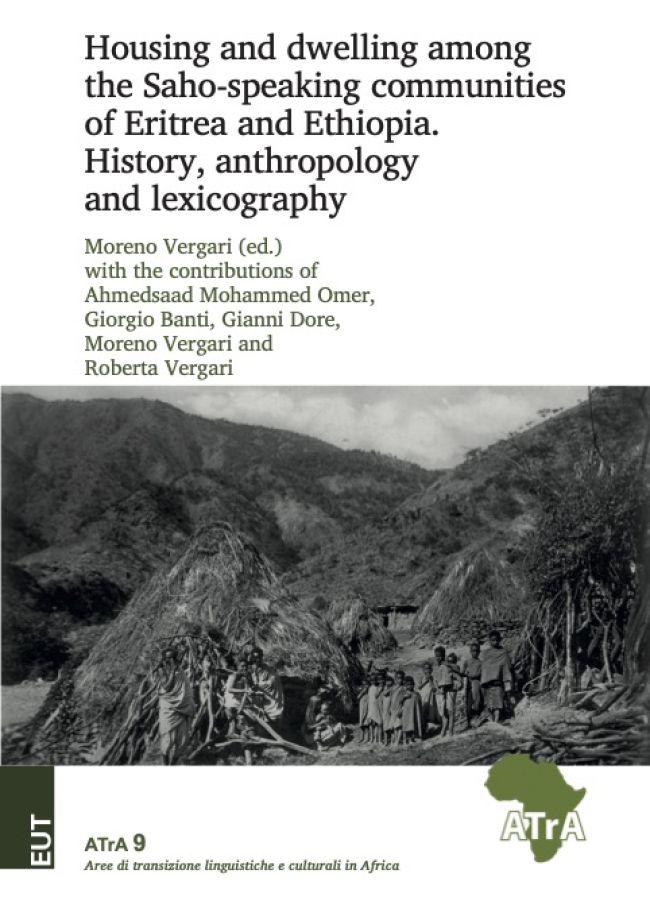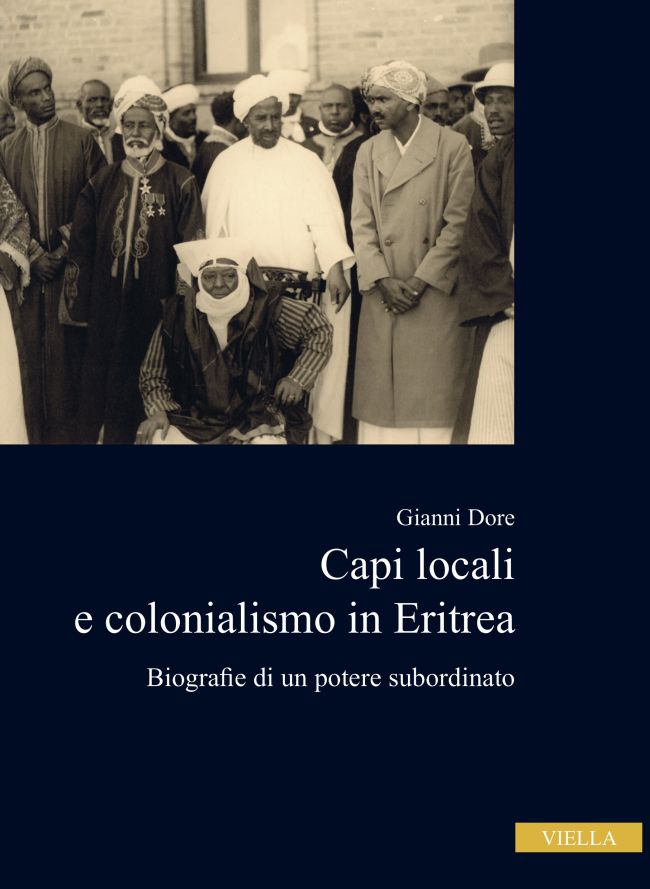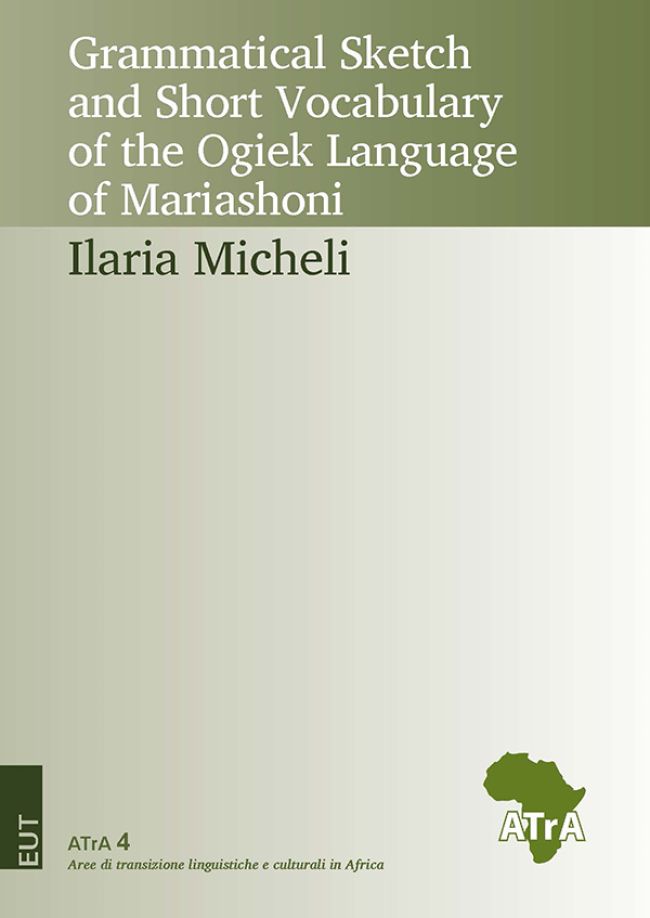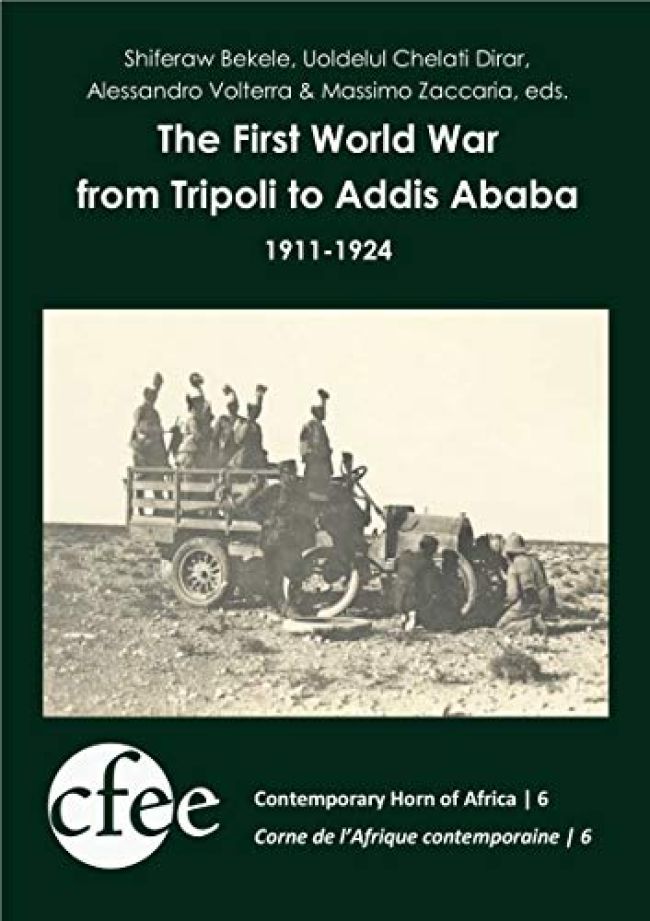Altre pubblicazioni.
In questa sezione vengono segnalate pubblicazioni recenti dei soci di Ethnorêma.

Moreno Vergari (ed.) with contributions of Ahmedsaad Mohammed Omer, Giorgio Banti, Gianni Dore, Moreno Vergari and Roberta Vergari (2022)
Housing and dwelling among the Saho-speaking communities of Eritrea and Ethiopia. History, anthropology and lexicography.
ATrA 9. Trieste: EUT.
This book is the results of field research among the Saho-speaking communities of Eritrea and Ethiopia by a linguists and anthropologists from the non-profit association “Ethnorêma”, the University of Naples L’Orientale, the Ca’ Foscari University of Venice and local institutions. It is a product of the “Atlas of the Traditional Material Culture of the Saho” project, which aims at documenting the traditional material culture of the Saho, its variation and terminology across the different Saho-speaking communities of Eritrea and northern Ethiopia, and the more general dialect variation in phonology, grammar and the lexicon. In particular, this volume describes the Saho speakers’ knowledge of construction techniques and its lexicon, sociofamilial aspects related to dwelling and the daily activities associated in types of residences and their outbuildings. Comparison with research from the early 20th century provides a diachronic dimension, while the data elicited in some 20 different localities ensure synchronic depth, with a focus on dialectal variation. After a general introduction, Gianni Dore’s contribution is an extensive historical-anthropological description of these issues. Moreno and Roberta Vergari, and Ahmedsaad Mohammed Omer’s one is a rich encyclopedic lexicon of the terms related to dwelling and household activities.

Gianni Dore (2021)
Capi locali e colonialismo in Eritrea.
Biografie di un potere subordinato.
Roma: Viella.
Alla fine della guerra contro l’Etiopia – tra il 1936 e il 1941 – i funzionari coloniali italiani, militari e civili, dovettero gestire l’amministrazione e la vita quotidiana dei territori di vecchia e recente conquista, fronteggiando insieme le attività di resistenza armata, fino alla dissoluzione dell’impero. Il volume, servendosi dei documenti scritti e iconografici dell’archivio del commissariato coloniale di Agordat, ricostruisce dispositivi e pratiche della gestione del potere in una sezione dell’impero, il bassopiano occidentale eritreo, inserita nella rete di scambi tra il Mar Rosso e l’interno sudanese. Interpretando le “mini-storie” di vita e le note amministrative contenute nelle schede biografiche, corredate anche dalle foto individuali, lo studio analizza la relazione, contraddittoria e sempre in fieri, con i poteri subordinati, incorporati nei capi politici e religiosi, e inoltre con i notabili di ufficio e gli interpreti, figure necessarie di un’ambigua intermediazione tra colonizzatori e colonizzati.

Ilaria Micheli (2018)
Grammatical Sketch and Short Vocabulary of the Ogiek Language of Mariashoni. ATrA 4. Trieste: EUT.
Ogiek is a Nilo-Saharan, Satellite-Core, Core, Eastern Sudanic, Southern, Nilotic, Southern, Kalenjin language spoken by a community of Hunters and Gatherers living in the region of the Eastern Escarpement of the Mau Forest in Kenya. In the framework of a still very poorly described linguistic family, this work represents a first, non exhaustive and tentative descriptive grammatical sketch of the dialect spoken by the circa 15.000 Ogiek belonging to the 7 clans of the Morisionig family. The book contains also a short vocabulary of the language, where 646 Ogiek entries are recorded. The vocabulary is completed by a corresponding English-Ogiek wordlist.
